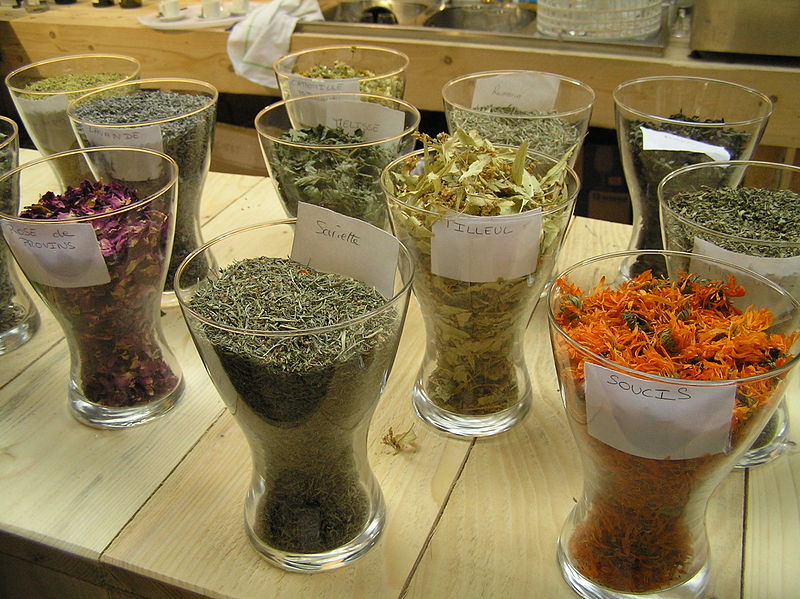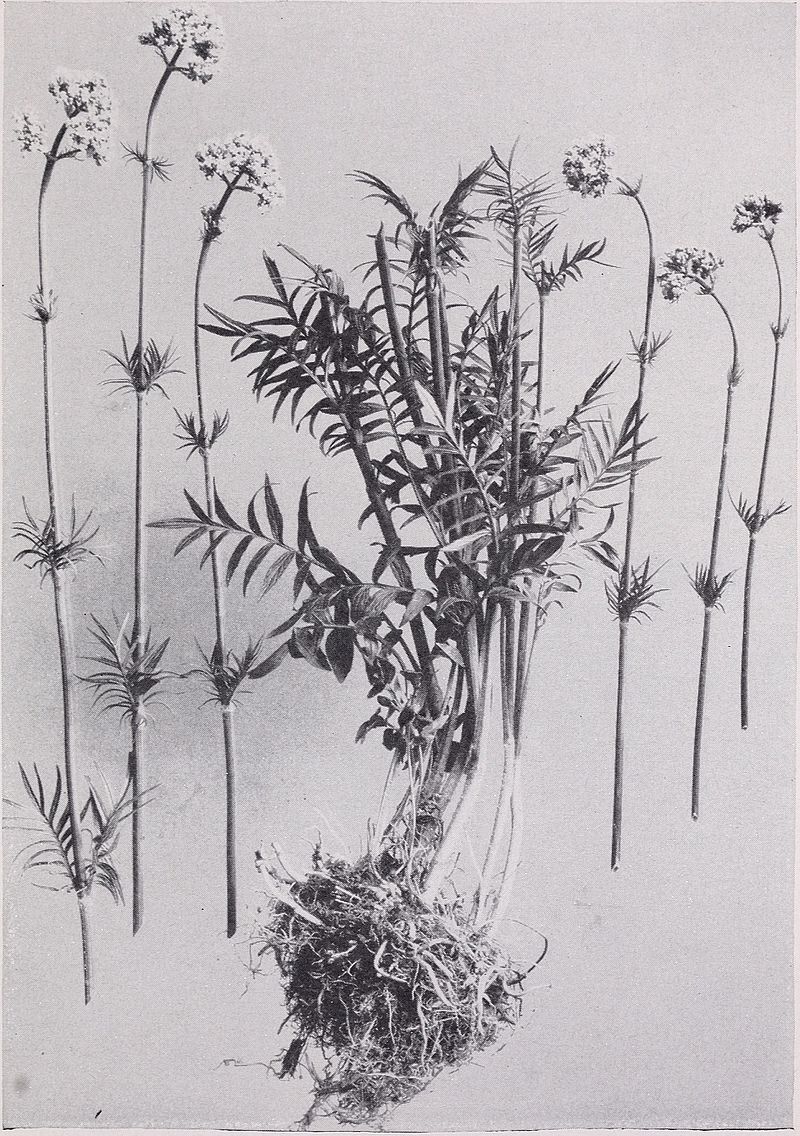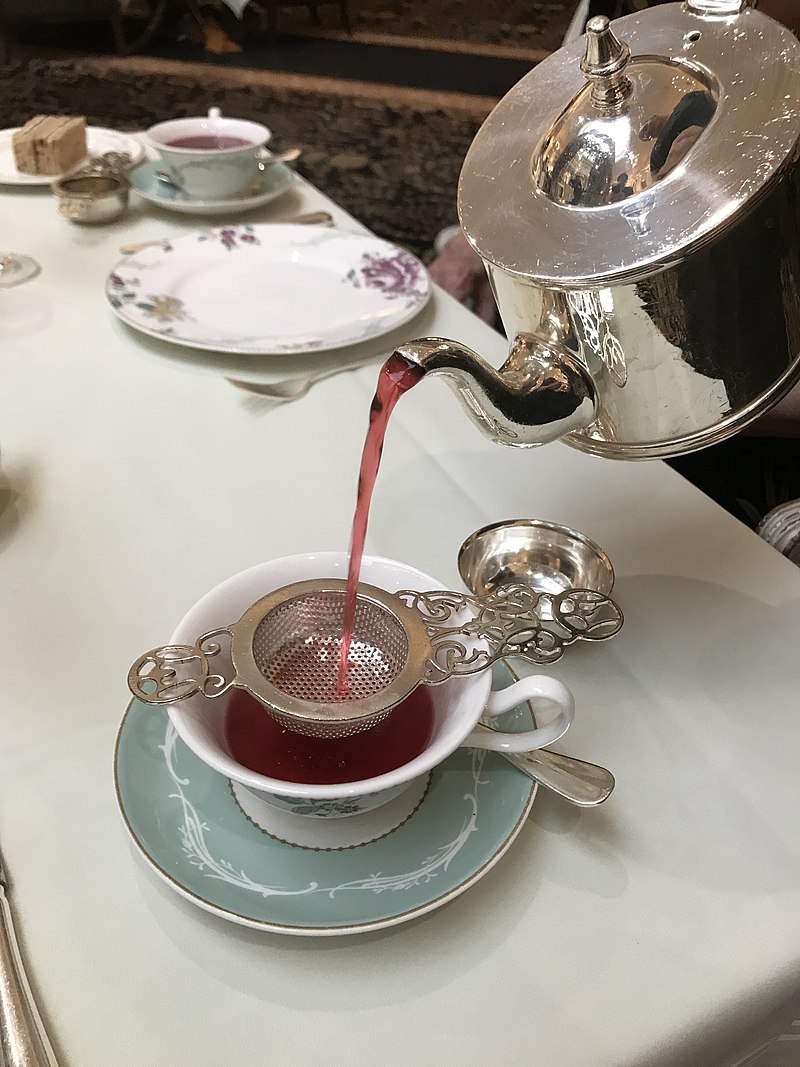
This briefing on the risks of herbal teas is downbeat and cautionary. Its aim is to help you enjoy the upbeat pleasures of the growing range of flavors, ingredients and blends that have added so much freshness, subtlety, health and nutritional value, and originality. The downbeat note is simple: Do you really know what you’re drinking and how it affects your body?
- What is in the tea?
- How safe is it for you?
- Is the information about it accurate?

There is an extensive and largely repetitive literature that addresses all these questions. While it is not pervasively negative, it is solidly packed with cautions, examples and too many alarm buzzers to be ignored.
Here’s a list of the main risks:
- The herbal tea you assume to be gentle and mild can have powerful impacts in larger doses. That includes chamomile, the stereotypical and effective calming nighttime tea. It’s estimated that a million cups of chamomile tea are drunk daily in the U.S. Chamomile has been used since the dynasties of Ancient Egypt for its easing of digestion, antibacterial properties and soothing depressive impacts. Those benefits come with risks of bleeding, severe drowsiness if mixed with alcohol, and significant dangers in pregnancy.
- You have no idea what the interactions between your tea and common over-the-counter or prescription drugs may produce. Blood thinners, anti-coagulants and even aspirin can cause liver and kidney damage in combination with herbal teas. A Mayo Clinic report in 2016 states that fully 1-in-5 of deaths from non-ailment-related liver failure were caused by herbal compounds. This figure has doubled in ten years.
- You don’t inform your physician that you drink what is really an herbal medication. Valerian is a marvelous sedative and sleep aid, but physicians routinely warn of its many dangers and strongly urge getting specific advice, avoiding its use in conjunction with many medical prescriptions, discontinuing long-term use, and stopping any consumption for two weeks before any surgical treatment. It acts very much like a medical anesthetic. This statement is commonplace in reviews of valerian: “However, [this and several other herbs] are powerful drugs that should be used only under the consultation of a medical professional, not used casually as a beverage.” Not one of the more than 500 ads on Amazon for valerian herbal tea blends mentions the risks.
- The tea you buy is falsely labeled, contains unlisted or misstated ingredients, hasn’t been tested and makes unsupported claims. The regulatory and legal gaps across herbal production through to distribution provide too many opportunities for corner cutting and fraud, even though most companies are reliable and ethical. There are many reasons for this but for the tea drinker, it’s figures like these that matter: 2013 studies, U.S.: 14-33% of products sampled were mislabeled, ingredients in less than half could be authenticated in DNA barcoding tests, 20% contained unlisted fillers like rice and soy; 2015; only 21% of tested herbals sold in CVS, GNC, Walmart and Target were accurately labelled. 2017, Australia: 24% of “herbal” imports contained prescription drugs, 80% did not comply with labeling requirements; 2019, the FDA commissioner, Scott Gottlieb, MD., discussing the agency’s plans to enhance its oversight of supplements: “Simply put, health fraud scams prey on vulnerable populations, waste money and often delay proper medical care.”
What’s in the tea?
The obvious answer is herbs, of course: those mild, aromatic and natural harvests from plants that add so much to foods. Here’s one that has a long therapeutic history in treating asthma, pneumonia, indigestion and muscle weakness. It has a lovely name, belladonna. There’s a less enchanting and more common one for it: deadly nightshade. It’s medicinal in very low doses and fatal in higher ones. This is Risk #1 in herbal teas: the very same herb can be a nutrient and a poison.
Belladonna is a herb from the same family as tomatoes, potatoes and tobacco. It can be used to relax blocked airways and relieve headaches, irritable bowel syndrome, and menopausal symptoms. And it’s very poisonous, containing up to 20 different and powerful alkaloids. Obviously, no tea brand offers a Belladonna Bedtime (Forever) tea but it is surprising to most tea lovers just how many common herbs carry dangers.

The very fact that chamomile, valerian, lavender, lemongrass, spearmint, St. John’s wort and other common tea ingredients have proven health benefits in and of itself is a warning. It means that they interact with the body at the neurological and chemical level; they are not inert. If they provide medical benefits, then that must come from their powerful chemical impacts.
Spearmint is healthy in itself but it too easily affects kidney functions when mixed with a variety of other medications. Ginseng increases stamina and concentration at the risk of decreasing the effectiveness of anti-clotting medications, causing bleeding in post-menopausal women. Hibiscus lowers blood pressure by around 7 points, negatively affects estrogen levels and can produce hallucinations.
Many of the most powerful negative effects of herbal teas come from their interaction with medications. If you are taking Warfarin, a leading medication for reducing blood clots, you need to be aware that it has serious side-effects that are life threatening. Certain herbal teas raise the likelihood of severe bleeding.
Your body doesn’t distinguish between a herb or a drug. There are more than 500 potential interactions with valerian, so you should have a drug screen for it. But how many herbal tea drinkers would even think to inform their physician about the mild, natural and organic tea they take for granted?
Reducing the risks
Here are suggestions for both avoiding the risks and enjoying the pleasures and benefits of herbal teas:
- Stick to herbal tea infusions from firms that have a strong reputation for offering fine tea blends. Those that make outstanding caffeinated whole leaf teas make outstanding herbal blends. The best herbal tea specialists highlight both the nature of their premiumization and differentiation. They are elite blenders of fine teas, that in their case are herbal rather than, say, flavored Earl Greys or jasmine infused China greens.
- Check if the branding seller sources the ingredients from growers through collaborative relationships and certification such as UEBT/UTZ. Look also for their testing and use of conformance labs that authenticate the supply chain and ensure safety. If the ingredients are not fully listed with evidence of authenticity, why take any risk?
- Think belladonna, not parsley. Herbal does not mean gentle and safe. Don’t discount the powerful impacts. It’s easy to check the basic of drug interactions, side effects and dosages online and sensible to assume they exist and not dismiss them from consideration.
- Keep your physician informed. Regular consumption of a herbal tea with a dominant ingredient is a medication. List it as such, just to be safe.
- Be very wary of herbal dietary supplements and extracts, including green tea compounds. The proper place for miracle, celebrity-rave, anonymous dietary, detox and other pseudo-medications is in a zipper bag that you take to a drug disposal or unused medicine pharmacy or community service.
Tea Market
Get More Value from Your Tea: BRU Maker One
+41794574278
Jacque's Organics
(647) 804-7263